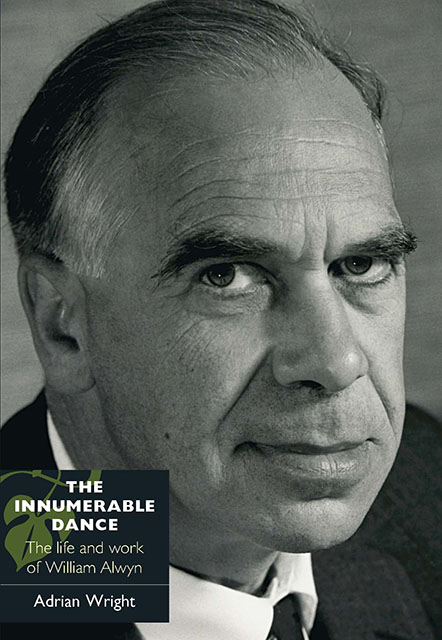Book contents
- Frontmatter
- Contents
- Illustrations
- Preface and Acknowledgements
- Introduction
- 1 Early Closing
- 2 The Music of Northampton
- 3 A Number of Scotsmen
- 4 Olive
- 5 Union and Exile
- 6 A Purpose for Cinema
- 7 A War of his Own
- 8 Is Your Journey Really Necessary?
- 9 A Coming British Woman Composer
- 10 Towards a Festival
- 11 Questions of Inspiration
- 13 The Late Romantic
- 14 E-Day
- 15 Symphonic Reflections
- 16 Soundless Music
- 17 The Other Suffolk Composer
- 18 The Blythburgh Operas
- 19 The Stillness
- 20 Living and Learning
- 21 Precious Toy
- Epilogue
- Notes
- List of Alwyn’s Works
- Discography
- Bibliography
- General Index
- Index of Alwyn’s Works
17 - The Other Suffolk Composer
Published online by Cambridge University Press: 10 March 2023
- Frontmatter
- Contents
- Illustrations
- Preface and Acknowledgements
- Introduction
- 1 Early Closing
- 2 The Music of Northampton
- 3 A Number of Scotsmen
- 4 Olive
- 5 Union and Exile
- 6 A Purpose for Cinema
- 7 A War of his Own
- 8 Is Your Journey Really Necessary?
- 9 A Coming British Woman Composer
- 10 Towards a Festival
- 11 Questions of Inspiration
- 13 The Late Romantic
- 14 E-Day
- 15 Symphonic Reflections
- 16 Soundless Music
- 17 The Other Suffolk Composer
- 18 The Blythburgh Operas
- 19 The Stillness
- 20 Living and Learning
- 21 Precious Toy
- Epilogue
- Notes
- List of Alwyn’s Works
- Discography
- Bibliography
- General Index
- Index of Alwyn’s Works
Summary
It is natural to think of Alwyn as a dilettante poet, but that would be a misunderstanding of Alwyn’s intention: he wanted, needed, his poetry to be taken seriously: as he made clear, ‘My writing is not a semi-private affair.’ At the end of the 1960s he began establishing himself as a translator of French poetry, his command of that language entirely self-taught. It was a very real achievement that his compilation and translations were published by Chatto & Windus as An Anthology of Twentieth Century French Poetry in 1969. His own poetry was to assume a tremendous importance. The switch from composer to poet seemed to him inevitable, for ‘I believe that there are some things that can only be experienced in musical sounds, some in visual images (I mean painting and sculpture) and some only in words.’His poems, he said, were often long,
perhaps even pseudo-poetry – because I use poetry as the vehicle for the expression of my philosophic mind and are the result of long brooding on aesthetic problems – for instance, the meaning of art, and the search for beauty, for truth and other essential values in our creative activities, whether in poetry, music or painting: also, in writing such poems I have probed into the meaning of life – of mortality and immortality – problems that have puzzled and intrigued men from the dawn of human time. And perhaps above all else I am absorbed in one problem – the problem dearest to my heart – the meaning of beauty.
Mary was kept busy sending off manuscripts throughout the Blythburgh years, but there would be no commercial interest. The poetry was taken to the local printers and issued in severely limited editions, a good number of which never left Lark Rise. Alwyn relished the complimentary replies he had from those friends to whom he sent copies, and sighed at the often less than complimentary comments from other sources. There was a prolonged shrug of the shoulders throughout the seventies, for ‘In these days everyone must specialize. To be a composer and a poet is unthinkable. I am labelled in the publishers’ minds as a composer therefore I cannot be a poet of consideration. It was solely through my wife’s encouragement that I decided to print them privately. She thought they were too good to remain on the shelf in manuscript.’
- Type
- Chapter
- Information
- The Innumerable DanceThe Life and Work of William Alwyn, pp. 213 - 227Publisher: Boydell & BrewerPrint publication year: 2008



